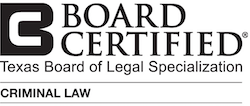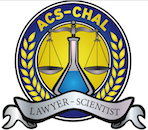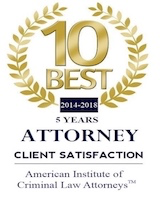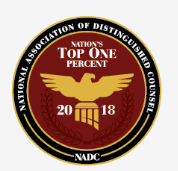The Oath Of An Attorney
I experienced a situation recently where I believed that an attorney I was working with had totally lost sight of what really mattered in our profession. It was my belief that this attorney was only considering the monetary aspect of the practice of law, and I believe this person had totally forgotten what it really meant to ethically engage clients who are in need of our service.
I strongly believe representing the accused in a criminal matter is the highest calling an attorney can have. This particular situation presented itself where a man, one of my clients, is facing life in prison for a crime I sincerely believe he did not commit. Regardless of his guilt or innocence, engaging in this representation as an attorney is no small undertaking. And I will never, ever take something of this magnitude lightly.
Upon reflection, I couldn't help but think of the oath I took as attorney when I first started the practice of law. This situation made me contemplate what the oath was, and what it actually meant.
Webster's dictionary defines the term "Oath" as follows:
(1) A solemn usually formal calling upon God or a god to witness to the truth of what one says or to witness that one sincerely intends to do what one says;
(2) A solemn attestation of the truth or inviolability of one's words.
One of Webster's definition, therefore, conveys that God is a witness to the sincerity of the oath. The other definition connotates the sacred nature of a man's "word."
The oath every attorney who practices in Texas is as follows:
OATH OF AN ATTORNEY, § 82.037 Texas Government Code:
(a) Each person admitted to practice law shall, before receiving a license, take an oath that the person will:
(1) support the constitutions of the United States and this state;
(2) honestly demean himself in the practice of law; and
(3) discharge the attorney's duty to his client to the best of the attorney's ability.
(b) The oath shall be endorsed on the license, subscribed by the person taking the oath, and attested by the officer administering the oath.
My "word" is my bond. I know this saying may be a bit cliche, but the oath that an attorney takes is his "word" according to the Webster definition. Therefore, the oath is his bond. Hence, an attorney is bound by that oath. Period.
Perhaps I am being too deep and a bit too literal about what the oath means. I fully realize that one has to be a good businessman to be successful in the practice of law. I find perhaps the hardest part of being a lawyer is balancing the financial aspect of running a business against the practice of law. It is a difficult struggle. I find some attorneys to be good at the practice of law, but terrible businessman. And vice versa.
Regardless, nowhere in that oath is the word money, business, or financial position mentioned. For me, therefore, it means that if an attorney agrees to undertake in the representation of a client, he will do it to the best of his ability, no matter how much money is earned when doing so.
I take the oath I took as an attorney seriously. I did not get into the practice of law to make myself rich. Had that been my ultimate objective, I would have chosen a different career path. I chose the practice of law because I wanted to help people. I believe in what I do, as I believe in our system. I know, however, that our system needs people to fight for the rights of the accused AT ALL COST, and no matter how much money is at stake.
Recently, the arguments in the reversal of the conviction of Cameron Todd Willingham were heard in Austin, Texas. Mr. Willingham was a person who was wrongfully executed in Texas in 2004 for a crime he did not commit. Since hearing his last words, I cannot seem to get them out of my mind.
"The only statement I want to make is that I am an innocent man - convicted of a crime I did not commit. I have been persecuted for 12 years for something I did not do. From God's dust I came and to dust I will return - so the earth shall become my throne."
His words are chilling to me, and I cannot seem to get them out of my mind. His trial happened almost 20 years ago. An innocent man was convicted of a crime he did commit, and he was sentenced to death by lethal injection. I have no idea what happened at his trial, or what arguments his attorney did or did not make. I would presume, in fact, that his attorney did a very good job, just the facts were not in his favor at that particular moment in time (judge, jury, prosecutor, public sentiment, etc.).
My question would be, at the end of the day, do you think his attorney after the trial took great pride in the amount of money he made off the case? I sincerely doubt it. For me, no amount of money could console me knowing that I was a part of such a miscarriage of justice. I was not even a part of his trial and just recently started exploring the facts, but his last words haunt me nonetheless. I can only imagine what it would do to me had I been there to experience it with him.
MY WORD IS MY BOND. And I will always discharge my services to the best of my ability.






















